Medical news December 24: Awake brain surgery with artificial intelligence robot
One of the outstanding advantages of AI Robot is reducing surgery time and recovery time for patients.
Medical breakthroughs through technology
Thanks to the application of AI Robot technology, many difficult and dangerous cases, especially patients who were “returned” because they could not be operated on, have been saved. Many patients have recovered and been able to walk after many years of being bedridden, or regained their vision after a long period of blindness.
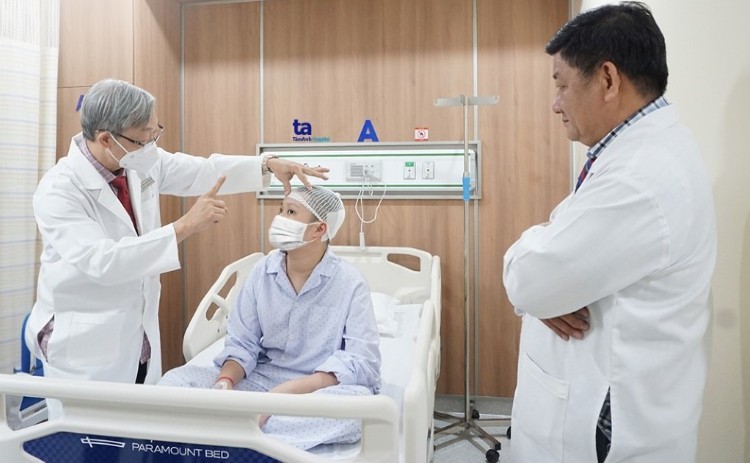 |
| Thanks to the support of AI Robot, stroke surgery can be shortened from more than 2 hours to only about 40-60 minutes. |
The AI Modus V Synaptive robot is capable of integrating advanced imaging technologies such as MRI, CT, DSA, DTI, etc. to create sharp 3D images, helping doctors clearly observe the relationship between tumors, hematomas and healthy brain structures. This helps doctors plan surgery accurately, minimizing risks during surgery.
In addition, AI Robot allows for pre-simulated surgery on smart software, giving doctors time to research and decide on an effective and safe approach to the tumor.
During surgery, the Robot closely monitors, helping to accurately locate the lesion and assist the doctor in performing precise surgical operations, from removing tumors to treating hard-to-reach brain areas.
One of the outstanding advantages of AI Robots is reducing surgery time and recovery time for patients. Specifically, surgery with AI Robots reduces 20% of surgery time, 40% of hospital stay time, and 79% of blood loss during surgery.
Meritorious physician, Master, Doctor, CKII Chu Tan Sy, Head of Neurosurgery Department, Neuroscience Center of Tam Anh General Hospital, Ho Chi Minh City, is the first person to perform brain and spinal cord surgery using AI Robot in Vietnam.
Globally, this technology is only available in 14 countries, mainly developed countries. This surgical technique not only helps increase precision during surgery but also minimizes risks for patients.
A special feature of Tam Anh General Hospital is the ability to perform awake brain surgery in emergency cases of cerebral hemorrhage. This technique is considered revolutionary by the World Stroke Association, allowing patients to stay awake throughout the surgery.
Thanks to the support of AI Robot, stroke surgery can be shortened from more than 2 hours to only about 40-60 minutes. This helps reduce the risk of complications and increase the patient's ability to recover quickly.
The application of AI Robot technology in brain tumor, spinal cord tumor and hemorrhagic stroke surgery not only brings great progress in the medical field but also opens up hope for millions of patients in Vietnam.
It is known that this facility has just announced the successful surgery of 100 brain tumor, spinal cord tumor and hemorrhagic stroke cases using the AI Modus V Synaptive Robot - the most advanced and unique technology in Vietnam.
Liver and kidney failure due to jaundice spirochetes
Ms. VTG, 62 years old, from Van Quan, Lang Son, works in the production of dried noodles in an environment with water from a rock crevice, often in contact with water, making her feet always wet. For the past 3 years, she has had signs of blisters on her feet but they did not heal despite home treatment. By early 2024, her condition worsened, she had severe pain, high fever and could not walk.
After being admitted to Lang Son General Hospital, Ms. G.'s condition did not improve, and she suffered from liver failure, kidney failure, low blood pressure, and difficulty breathing. Therefore, Ms. G. was transferred to the Central Hospital for Tropical Diseases in serious condition, with signs of severe septic shock.
At the hospital, doctors determined that Mrs. G. was infected with Leptospira bacteria (yellow spirochetes), a dangerous infectious disease. Yellow spirochetes can cause a series of dangerous symptoms, and if not treated promptly, can lead to serious complications.
Doctor Vo Duc Linh, Department of Intensive Care, Central Hospital for Tropical Diseases, said that the average treatment time for this disease is from 10 to 14 days if the patient responds well to the medication. Mrs. G was fortunate to be admitted to the hospital in time and is currently recovering.
According to Dr. Linh, to prevent Leptospira disease, factories, livestock farms, and slaughterhouses need to be kept clean and disinfected regularly.
Workers in high-risk environments such as noodle production, livestock farming or slaughterhouse workers need to be fully equipped with protective gear such as boots, gloves, aprons and goggles. Areas with stagnant water also need to be cleaned and treated promptly to prevent bacterial invasion.
Doctor Linh recommends paying attention to cleaning the working environment and protecting personal health. Avoid bathing in lakes, ponds or areas with water of unknown origin.
Dangerous complications of intestinal adhesions
Intestinal adhesions are a condition in which loops of intestine become attached to the abdominal wall or to abdominal organs, caused by scar tissue. Scar tissue can cause abdominal organs to stick to each other or to the surfaces of different organs. Intestinal adhesions can occur in many different locations in the abdomen, including the intestines, uterus, and other organs.
Patient D.TT, 66 years old, from Doan Hung district, Phu Tho, was admitted to the hospital with abdominal distension, constipation and gastric tube leaking digestive juices. After being diagnosed with adhesive intestinal obstruction, the patient was scheduled for surgery to remove adhesions and restore intestinal circulation.
The patient had a history of hysterectomy and small bowel resection and intestinal adhesions in 2022. This time, abdominal pain and vomiting caused her family to take her to a private hospital in Phu Tho. After 10 days of treatment without improvement, the patient proactively went to Phu Tho Provincial General Hospital.
Here, doctors determined that the small intestine was obstructed by adhesions and performed surgery. During the surgery, the small intestine loops were dilated and stuck at an angle, causing complete obstruction of the ileum near the ileocecal angle. Doctors removed the adhesions and cut the obstructed intestine to restore intestinal circulation. The patient is now stable and has been discharged from the hospital.
Patients who have had abdominal surgery such as appendectomy, gallbladder surgery, intestinal anastomosis, emergency surgery for ectopic pregnancy, cesarean section, kidney stone surgery, or other abdominal surgery are at higher risk of intestinal adhesions.
Patients with inflammatory diseases in the abdominal cavity such as appendicitis, enteritis, colitis, oophoritis, endometritis, urinary tract infections, cystitis, etc. are also at risk of developing intestinal adhesions.
Additionally, patients with Crohn's disease, especially those with infections in the intestines, around the rectum and anus, may develop abscesses, which can lead to intestinal adhesions.
Other causes such as intra-abdominal bleeding due to intestinal perforation, endometriosis, cancer, chemotherapy or radiation therapy for cancer, or foreign objects from surgical equipment remaining in the abdomen can also cause intestinal adhesions.
If not detected and treated promptly, intestinal adhesions can lead to very serious complications. Intestinal obstruction is one of the most common complications, causing symptoms such as loss of appetite, decreased urination, thirst, dry skin, vomiting, constipation, constipation and possibly high fever if there is intestinal inflammation.
Intestinal adhesions can also cause the intestines to twist, blocking blood flow and leading to intestinal necrosis. This complication is extremely dangerous, causing symptoms such as vomiting, nausea, intestinal rumbling, and intestinal bleeding.
According to Dr. Tran Thanh Tung, Head of General Surgery Department, Phu Tho Provincial General Hospital, complications from intestinal adhesions can seriously affect the quality of life and health of patients.
Therefore, for patients who have had abdominal surgery, special attention should be paid to health monitoring. If abnormal signs such as abdominal pain, vomiting, bloating, or urinary retention appear, patients should quickly go to the hospital for timely examination and treatment.






![[Photo] President Luong Cuong receives Speaker of the New Zealand Parliament Gerry Brownlee](https://vphoto.vietnam.vn/thumb/1200x675/vietnam/resource/IMAGE/2025/8/29/7accfe1f5d85485da58b0a61d35dc10f)


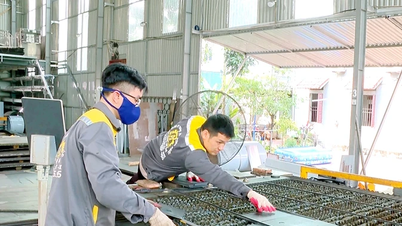



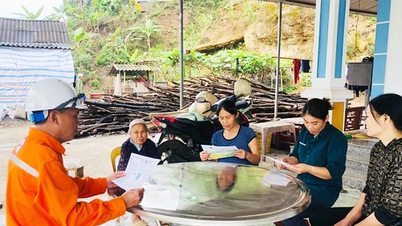

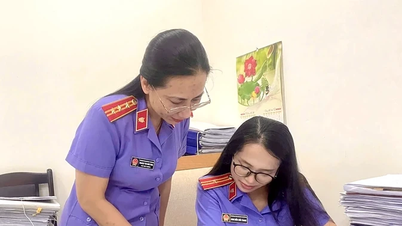










![[Photo] Hanoi is ready to serve the occasion of the 80th National Day Celebration on September 2nd](https://vphoto.vietnam.vn/thumb/1200x675/vietnam/resource/IMAGE/2025/8/29/c838ac82931a4ab9ba58119b5e2c5ffe)











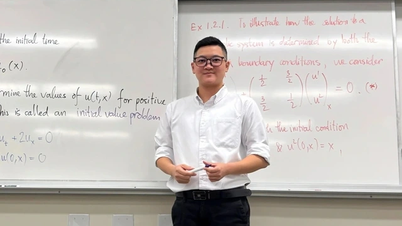



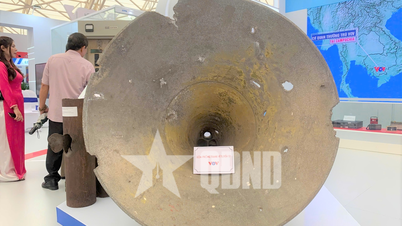






























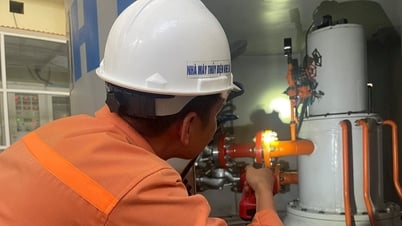
















Comment (0)